Introduction:
Male infertility is a topic that affects countless individuals and couples worldwide. In this article, we delve into the complex realm of infertility, offering insights into the causes of male infertility, such as low sperm count, poor sperm motility, abnormal sperm morphology, hormonal imbalances, and lifestyle factors that can play a crucial role in fertility challenges. Whether you’re seeking answers or knowledge, you’ve come to the right place.
When facing male infertility, understanding the diagnostic process is paramount. We explore the various diagnostic tests for male infertility, shedding light on how medical professionals identify the root causes of fertility issues. From semen analysis to hormonal assessments, you’ll gain a comprehensive understanding of the tools and methods used to diagnose male infertility.
Treatment options are a ray of hope for those dealing with infertility. Learn about the available therapies, from hormone treatments to surgical interventions like varicocele repair. Is male infertility permanent, and can it be cured? These questions will be answered as we discuss the various approaches to addressing male infertility and helping individuals and couples achieve their dream of parenthood.
At Nimaaya IVF Center, we’re dedicated to providing valuable insights into male infertility causes, diagnostic procedures, and treatment alternatives. Join us on this journey to unravel the complexities of male infertility and find the support you need to overcome this challenge.
What is Male Infertility?
Male infertility refers to the inability of a man to impregnate a female partner despite regular, unprotected sexual intercourse. This condition can be caused by various factors, including low sperm count, poor sperm motility (movement), abnormal sperm shape, hormonal imbalances, genetic factors, infections, or anatomical issues. Male infertility can significantly impact a couple’s ability to conceive and may require medical intervention or lifestyle changes to address underlying issues. Treatment options may include medication, surgery, assisted reproductive technologies such as in vitro fertilization (IVF), or lifestyle modifications to improve overall reproductive health.
Path to Parenthood: Male Infertility Causes, Diagnosis and Treatment
Male infertility is a topic that often remains in the shadows, discussed in hushed tones, and yet, it is a concern that affects countless individuals and couples worldwide. You are not alone if you or someone you know is dealing with this problem. In this comprehensive guide, we’ll delve deep into the causes, diagnosis, and treatment options for infertility. We’ll explore everything from the physical and physiological factors behind infertility to the emotional toll it can take on individuals and relationships. By the end of this article, you’ll have a clear understanding of this complex issue and the possible paths to overcome it. So, let’s embark on this journey of knowledge and hope.
Causes:
Male infertility can stem from a variety of causes, which may include genetic factors, lifestyle choices, medical conditions, and more. Understanding these root causes is crucial for effectively addressing infertility concerns. Some of the common causes of male infertility or male infertility symptoms include:
-
Low Sperm Count (Oligospermia):
Oligospermia is a condition characterized by a low sperm count in the ejaculate. A low sperm count can significantly reduce the chances of fertilization and conception.
-
Poor Sperm Motility (Asthenospermia):
Asthenospermia refers to poor sperm motility, where the sperm cells struggle to swim efficiently. This can hinder their ability to reach and fertilize the egg.
-
Abnormal Sperm Morphology (Teratospermia):
Teratospermia involves sperm with abnormal shapes or sizes. These irregularities can impair their ability to penetrate the egg successfully.
-
Hormonal Imbalances:
Hormonal imbalances can affect the production of testosterone and sperm. Conditions like hypogonadism can lead to infertility.
-
Varicocele and Male Fertility:
Varicoceles are swollen veins in the scrotum that can increase testicular temperature, negatively impacting sperm production and quality.
-
Lifestyle Factors:
Lifestyle choices such as smoking, excessive alcohol consumption, drug use, obesity, and high levels of stress can contribute to infertility.
Understanding the specific cause of infertility is essential for tailoring the appropriate treatment.
Diagnostic Tests:
Diagnosing male infertility typically involves a series of tests and evaluations to identify the underlying cause. These diagnostic tests may include:
-
Semen Analysis:
A semen analysis is the primary diagnostic tool for male infertility. It assesses the sperm count, motility, morphology, and other factors.
-
Hormone Testing:
Blood tests can determine hormone levels, which are crucial for sperm production. Hormonal imbalances can provide insights into the cause of infertility.
-
Physical Examination:
A physical examination can identify physical abnormalities, such as varicoceles, that may contribute to infertility.
-
Genetic Testing:
Genetic tests can uncover inheritable factors that affect fertility, such as chromosomal abnormalities or genetic mutations.
-
Imaging Studies:
Ultrasound or other imaging techniques can help diagnose structural issues in the reproductive system.
These diagnostic tests help pinpoint the cause of infertility, allowing for a more targeted approach to treatment.
Treatment Options:
The treatment of male infertility varies depending on the underlying cause and the severity of the condition. Some of the therapy possibilities or options are as follows:
-
Medications:
In cases of hormonal imbalances, medications may be prescribed to restore proper hormone levels, promoting sperm production.
-
Surgery:
Surgical procedures, such as varicocelectomy, can correct anatomical issues that hinder fertility.
-
Lifestyle Changes:
Adopting a healthier lifestyle by quitting smoking, reducing alcohol intake, and maintaining a healthy weight can improve fertility.
-
Assisted Reproductive Techniques (ART):
In cases of severe male infertility, ART procedures like in vitro fertilization (IVF) can help achieve pregnancy by directly injecting sperm into an egg.
-
Hormone Treatment:
Hormone therapy can be used to stimulate sperm production in cases of hormonal imbalances.
-
Counseling and Support:
Dealing with male infertility may be emotionally tough. Counseling and support groups can help individuals and couples cope with the stress and emotions associated with fertility issues.
-
Donor Sperm:
In cases of severe infertility, donor sperm may be an option for couples wishing to conceive.
Is Male Infertility Permanent?
One common concern among those facing infertility is whether it’s a permanent condition. The answer depends on the specific cause. In some cases, infertility is reversible with the right treatment. For example, hormonal imbalances or lifestyle factors can often be addressed, leading to improved fertility. However, in cases of genetic or structural issues, infertility may be permanent. It’s essential to consult with a healthcare provider to determine the root cause and potential for improvement.
Coping with Male Infertility:
The emotional and psychological impact of male infertility should not be underestimated. It can take a toll on an individual’s self-esteem and strain relationships. Here are some strategies to cope with male infertility:
-
Seek Emotional Support:
Don’t hesitate to seek emotional support from a therapist, counselor, or support group. It might be beneficial to express your feelings or thoughts and worries.
-
Maintain Open Communication:
It’s crucial to keep communication channels open with your partner. Remember that infertility is a common problem.
-
Explore Alternative Paths to Parenthood:
Adoption, surrogacy, or other family-building options can provide hope and fulfillment.
-
Focus on Self-Care:
Taking care of your physical and emotional well-being is paramount. Participate in stress-relieving and relaxing activities.
Male Infertility Symptoms
Male infertility symptoms can vary, but they often manifest gradually. Initially, men may not notice any overt signs. However, common symptoms may include difficulty achieving or maintaining an erection, pain or swelling in the testicular area, abnormal ejaculation patterns, such as premature or delayed ejaculation, and a decreased desire for sexual activity. Additionally, noticeable changes in sperm quality, such as reduced volume or abnormal morphology, may indicate underlying fertility issues. Seeking medical evaluation and testing can help diagnose and address male infertility concerns effectively.
Types of Male Infertility:
Male infertility is not a one-size-fits-all condition. It can manifest in various forms, including:
-
Primary:
This is when a man has never been able to impregnate a partner.
-
Secondary:
Secondary infertility occurs when a man has fathered a child before but is unable to conceive a subsequent child.
-
Obstructive:
This type of infertility results from physical obstructions in the reproductive system, such as a blocked vas deferens.
-
Non-Obstructive:
Non-obstructive infertility is typically due to issues like hormonal imbalances or sperm abnormalities.
Male Infertility Treatment Medicine:
Medications play a significant role in the hormone treatment for male infertility. Hormone treatments, antibiotics, and anti-inflammatory drugs are some of the options that can help address specific causes of infertility. Your healthcare provider will prescribe the appropriate medication based on your diagnosis.
Can Male Infertility Be Cured?
The curability of male infertility depends on its root cause. While some causes are reversible, others may be permanent. Therefore, it’s essential to consult with a fertility specialist to determine the specific cause and the chances of successful treatment. In many cases, with the right approach, infertility can be effectively managed.
Treatment of Male Infertility:
Effective treatment for infertility is dependent on accurate diagnosis and a personalized approach. Treatment may involve a combination of therapies and lifestyle changes, with the ultimate goal of achieving pregnancy. A few key points to remember when seeking treatment for infertility include:
-
Early Intervention:
Identifying and addressing infertility issues as early as possible can improve the chances of success.
-
Multidisciplinary Care:
A team approach, involving urologists, endocrinologists, and fertility specialists, can provide comprehensive care.
-
Patience:
Treatment may take time, and it’s essential to stay patient and committed to the process.
-
Regular Follow-up:
Consistent follow-up with your healthcare provider can monitor progress and adjust treatment plans as needed.
-
Male Infertility Test:
If you suspect infertility, it’s crucial to undergo an infertility test to determine the underlying cause. This typically involves a semen analysis, hormone testing, and physical examinations. These tests provide critical information for formulating an effective treatment plan.
What Are 4 Causes of Male Infertility?
While there are various causes of male infertility, four common factors include low sperm count (oligospermia), poor sperm motility (asthenospermia), abnormal sperm morphology (teratospermia), and hormonal imbalances. These causes can significantly impact a man’s fertility and the couple’s ability to conceive.
Nimaaya IVF Center:
When seeking expert guidance and treatment for male infertility, Nimaaya IVF Center is a renowned institution known for its expertise in the field of fertility. They offer a range of services and treatments to address infertility concerns. Their experienced team of specialists can provide personalized care, ensuring that individuals and couples receive the support and treatment they need.
Conclusion:-
Infertility is a complex issue with various causes, diagnostic tests, and treatment options. It can be emotionally challenging, but with the right approach, many individuals can overcome fertility challenges. Whether it’s addressing lifestyle factors, seeking medical treatment, or exploring alternative paths to parenthood, there is hope. If you or a loved one is grappling with male infertility, remember that you are not alone, and there are resources and professionals available to help you on this journey. Don’t hesitate to reach out, get informed, and take proactive steps toward achieving your dream of parenthood.

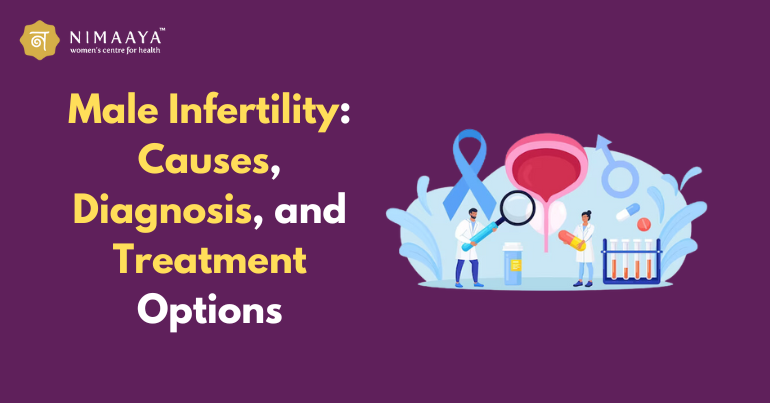
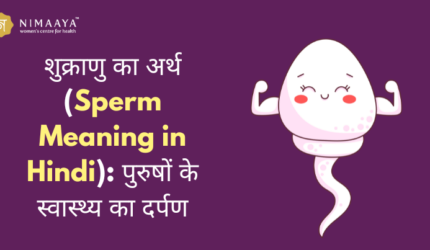


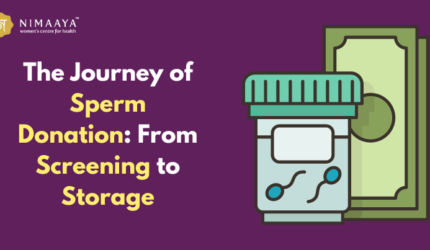

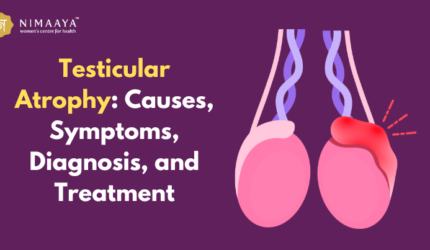
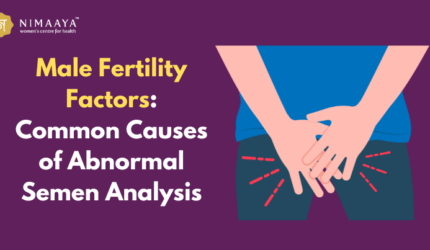
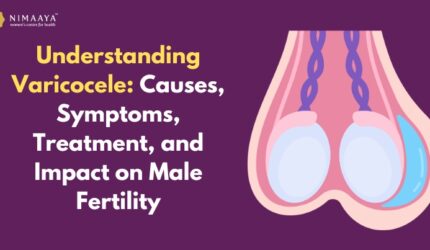

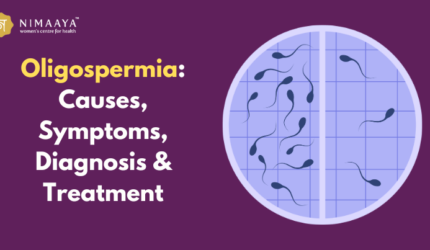
Comments 6
Thank you for bringing light on this important element of men’s health and offering helpful advice for those dealing with fertility issues.
This post is extremely radiant. I really like this post. It is outstanding compared to other posts I’ve read in quite a while. Much obliged for this better-than-average post. I truly value it!
This blog has become a trusted resource for understanding and addressing male fertility concerns. Thank you for providing such insightful and valuable content!
This post is extremely radiant. I really like this post. It is outstanding compared to other posts I’ve read in quite a while. Much obliged for this better-than-average post. I truly value it!
This blog has become my go-to source for understanding and exploring solutions for enhancing fertility. Thank you for shedding light on such an important aspect of men’s health.
Infertility issues became more common now a days both in men and women. Along with lifestyle and hormonal conditions, congenital abnormalities like hypospadias left untreated also results in male infertility